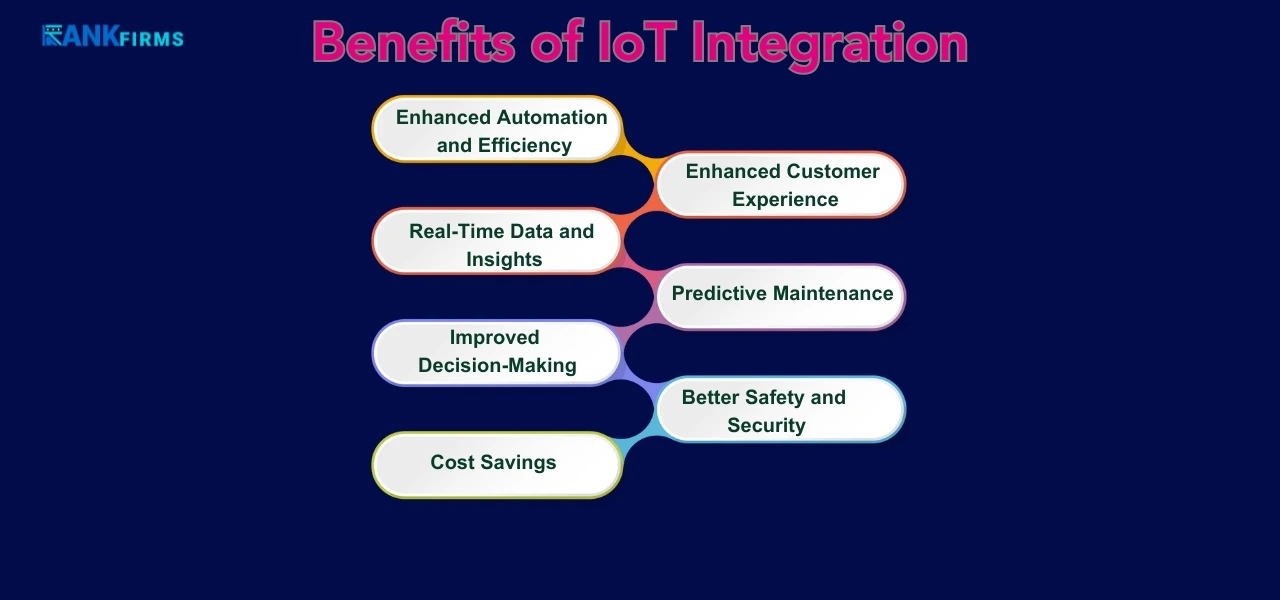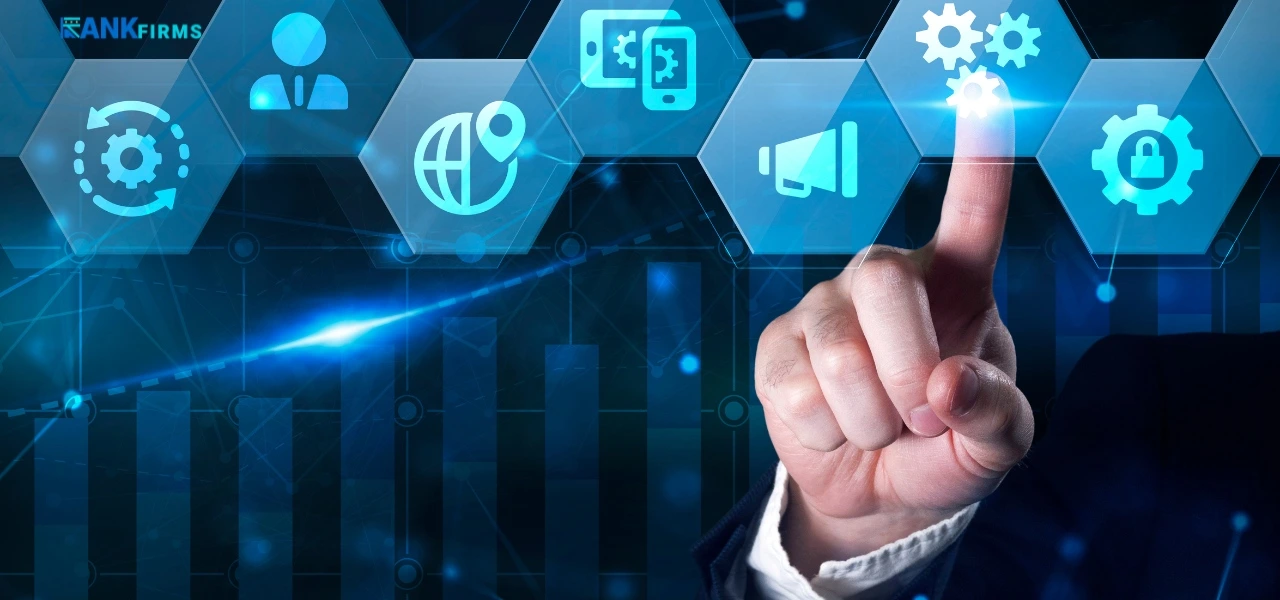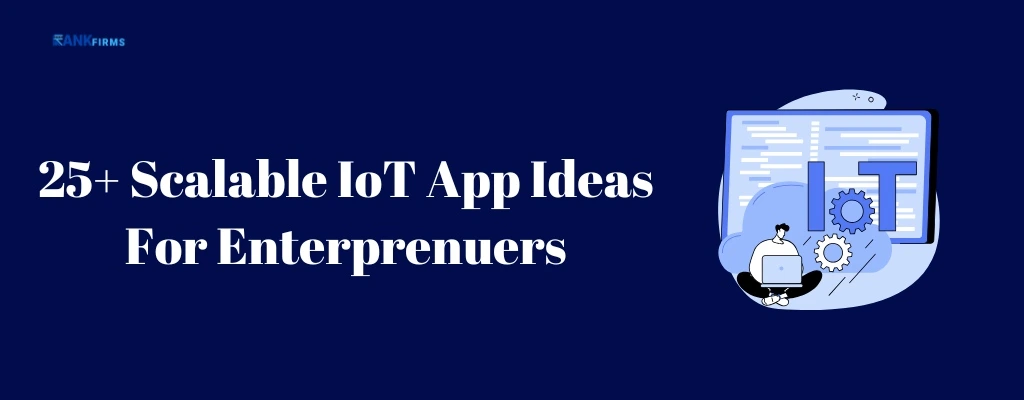We all look for smarter and automated solutions to help us with everyday tasks conveniently saving our time. The internet has become a part of our everyday life and most of our devices are connected with it, giving emergence to some of the smartest and safest IoT devices. IoT technology was quickly adopted in various sectors including healthcare, home automation, industrial manufacturing, and agriculture, offering software development companies the opportunity to develop compatible software.
The concept of the Internet of Things (IoT) emerged in the late 20th century when researchers began recognising the potential for everyday objects to interact and exchange data through the Internet. Initially, IoT was seen as an innovation largely suited for industries, helping businesses improve efficiency and productivity through interconnected devices.
However, as technology advanced and the internet became increasingly accessible, the potential for IoT to benefit daily life became undeniable. People started seeing how interconnected devices could streamline household tasks, improve healthcare monitoring, optimise energy use, and make urban living more efficient.
Today, IoT serves practical purposes by enhancing the user experience and making life more convenient, safer, and efficient. In terms of market growth, IoT adoption has accelerated tremendously over the past few years.
According to recent data, the global IoT market is expected to grow from approximately $478 billion in 2022 to over $2 trillion by 2030, with an impressive compound annual growth rate (CAGR) of 26.4% (GMIResearch). The increase in connected devices, the expanding role of 5G networks, and the integration of IoT with cloud and analytics are primary factors driving market growth.
In addition, IoT devices are projected to increase from 13.8 billion in 2021 to around 30.9 billion by 2025, highlighting a massive surge in both consumer and industrial demand.
This expansion demonstrates not only the adaptability of IoT technology but also the vast opportunities it offers for new applications across various industries. Integrating IOT offers multiple benefits, below are some of them.
Benefits of IoT Integration
Integrating IoT into applications provides a transformative edge across numerous sectors, enhancing operational efficiency, customer experience, and data-driven decision-making. Here are some core advantages:

1. Enhanced Automation and Efficiency
IoT enables automation by allowing devices to communicate and operate independently, reducing the need for human intervention. IT services companies can assist in industrial settings by creating IoT-powered systems to monitor and adjust machinery performance in real time. This can significantly boost efficiency and reduce downtime.
2. Real-Time Data and Insights
IoT devices gather large amounts of data, which can be analyzed in real-time to offer valuable insights. For instance, in healthcare, connected wearables monitor patient vitals continuously, providing healthcare providers with accurate and timely data for better care management.
3. Improved Decision-Making
Access to real-time data improves decision-making across various industries. In agriculture, IoT sensors monitor soil conditions, weather patterns, and crop health, enabling farmers to make informed decisions about irrigation, fertilization, and harvesting.
4. Cost Savings
IoT helps reduce costs by optimizing resource usage and minimizing waste. In smart cities, IoT technology improves energy management by adjusting lighting and heating systems based on occupancy, helping municipalities cut costs on energy bills.
5. Enhanced Customer Experience
IoT offers personalized experiences for users. In retail, IoT-based systems can analyze customer behaviour to provide tailored recommendations, helping businesses enhance customer satisfaction and loyalty.
6. Predictive Maintenance
With IoT-enabled predictive maintenance, companies can monitor the health of machinery and infrastructure, detecting potential issues before they lead to breakdowns. This reduces repair costs and extends the lifespan of equipment
7. Better Safety and Security
IoT solutions, such as smart home security systems, allow users to monitor their homes remotely. On a larger scale, IoT networks improve urban safety through connected surveillance cameras and automated emergency response systems, making cities safer for residents.
With these benefits, many IoT development companies can assist small businesses or entrepreneurs in scaling their businesses. Below are a few ideas that can be used for growth and scalability.
25+ Scalable IoT App Ideas For Enterprenuers

Here’s a list of IoT app ideas that small businesses and entrepreneurs can leverage for growth, covering various industries and applications:
1. Smart Home Security App
Monitors and controls home security through real-time alerts, video surveillance, and door/window sensors. Suitable for security businesses, this app offers peace of mind to homeowners and can generate recurring revenue through subscriptions.
2. Inventory Management for Small Retailers
Tracks inventory levels in real-time using IoT sensors on shelves and in stockrooms. Helps small retailers manage stock effectively, avoid overstocking, and improve customer satisfaction by preventing out-of-stock issues.
3. Smart Fleet Management
Enables businesses to monitor vehicle routes, fuel usage, and driver performance, optimizing logistics. Valuable for delivery services and logistics companies, reducing costs through better route planning and vehicle maintenance.
4. IoT-Based Customer Feedback System
Collects real-time feedback from customers via connected kiosks or devices placed in stores. Helps retail and hospitality businesses gauge customer satisfaction on-site, allowing for immediate adjustments.
5. Real-Time Energy Monitoring App for Offices
Tracks energy usage across devices in an office to promote sustainable practices and reduce costs. Suitable for small businesses aiming to cut energy bills and foster a green brand image.
6. Automated Irrigation System for Landscaping
Monitors soil moisture and weather conditions to control irrigation in landscaping. Ideal for landscape businesses, as it optimizes water use and ensures plant health, increasing service value.
Also Read: 25+ Innovative Dating App Ideas to Stand Out in 2024
7. Predictive Maintenance App for Small Manufacturing Units
Uses sensors on machinery to detect signs of wear and alerts maintenance teams to prevent breakdowns. Helps small manufacturing businesses reduce downtime and maintenance costs.
8. Personalized Retail Recommendations App
Analyzes customer shopping habits to provide personalized product recommendations. Retailers can use this to enhance customer experience and drive sales by delivering targeted suggestions.
9. Smart Warehouse Management
Uses IoT sensors to monitor stock levels, storage conditions, and inventory movement. Aids small e-commerce companies in managing their warehouse operations more effectively and reducing errors.
10. Health Monitoring App for Fitness Centers
Collects data from wearables to monitor users’ fitness progress, offering tailored workout and diet plans. Gyms and fitness centres can provide value-added services to members by monitoring and optimizing their progress.
11. Connected Pet Monitoring App
Tracks pets’ activity, location, and health stats using IoT-enabled collars. Pet care businesses can add this as a premium service, offering real-time pet monitoring for pet owners.
12. IoT-Enhanced Agriculture App
Monitors soil, weather, and crop health to help farmers make data-driven decisions. Useful for agricultural startups, allowing them to offer tailored insights that boost crop yields.
13. Smart Waste Management Solution for Urban Areas
Uses sensors in trash bins to alert waste management teams when bins are full. Local governments and waste management companies can optimize collection routes, saving time and reducing fuel costs.
14. Remote Patient Monitoring
Monitors vital signs like heart rate and oxygen levels in patients at home. Healthcare startups can provide home monitoring solutions, improving patient care and reducing hospital visits.
Also Read: Driving Healthcare Innovation Through Customized Software
15. IoT-Driven Asset Tracking App
Tracks valuable assets using IoT-enabled tags or GPS devices. Ideal for businesses in construction or heavy equipment rental, reducing theft risk and improving asset utilization.
16. Smart Lighting Solutions for Offices
Controls lighting based on occupancy and daylight, reducing energy usage. Companies focused on energy efficiency can offer smart lighting apps for office buildings, saving on electricity costs.
17. Air Quality Monitoring App
Tracks indoor air quality levels, alerting users if pollutants exceed safe thresholds. Useful for real estate and hospitality businesses that prioritize health and wellness in their buildings.
18. Automated Parking System
Tracks available parking spaces in real-time, reducing search time and managing traffic flow. Perfect for urban developers and malls, providing a solution to parking congestion while enhancing customer experience.

19. Connected Water Quality Monitoring App
Monitors water quality parameters in real-time, such as pH, temperature, and contaminants. Useful for companies managing water resources or businesses in the food industry, ensuring compliance and safety.
20. IoT-Enabled Fire Detection System
Detects smoke or temperature changes and alerts users immediately. An essential safety solution for commercial buildings, preventing loss by allowing faster responses to fire risks.
21. Remote Workforce Management
Tracks employee location, activity, and safety in field-based roles. Helps logistics, maintenance, or construction companies ensure workforce productivity and safety compliance.
22. Smart Personal Health Assistant
Tracks individual health data and offers personalized health advice. Aimed at health-conscious consumers, providing personalized recommendations on fitness and wellness routines.
Also Read: Best 30+ Healthcare App Development Ideas For Entrepreneurs
23. Voice-Activated Smart Office Assistant
Uses voice commands to control office settings like lights, blinds, and conference calls. Useful for corporate offices looking to streamline operations and improve employee convenience.
24. IoT-Enhanced Digital Signage for Retail
Provides dynamic, data-driven displays based on real-time analytics. Retailers can boost customer engagement and run location-based promotions, maximizing in-store advertising efforts.
25. Elderly Care Monitoring App
Tracks movement, falls, and medication schedules for elderly patients. Health and wellness companies can offer this solution to families and caregivers, enhancing senior safety.
26. Smart Building Maintenance App
Monitors infrastructure health, detecting issues like leaks, temperature irregularities, or structural shifts. Useful for property management businesses, allowing them to prevent costly repairs through early intervention.
Each of these ideas can help small businesses and entrepreneurs differentiate themselves while meeting the demands of a rapidly evolving IoT market.
In Conclusion
Integrating IoT technology offers transformative opportunities for businesses and entrepreneurs by optimizing operations, enhancing customer experiences, and creating new revenue streams. With applications spanning sectors from healthcare to agriculture and smart home solutions, IoT enables small businesses to harness data-driven insights and deliver personalized, efficient, and secure solutions to their customers. As IoT adoption continues to grow, these innovative applications offer a pathway to scalable, sustainable growth in an increasingly connected world.






